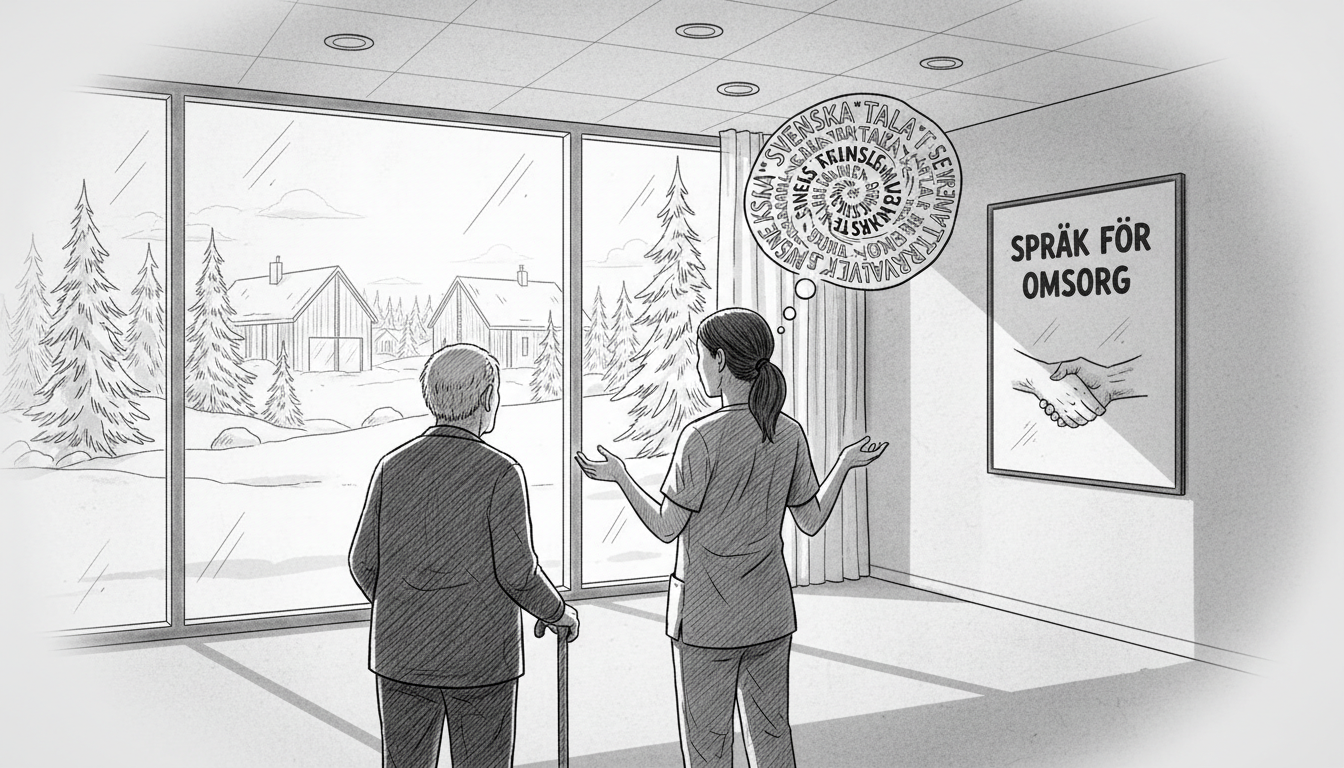Sweden will introduce new language training requirements for elderly care staff next year. The government decided against strict language proficiency mandates. This approach aims to balance communication quality with workforce availability.
The policy stems from the Tidö Agreement between Sweden's governing coalition and the Sweden Democrats. Government investigators determined that absolute language requirements would create staffing crises. Many care facilities already struggle to find qualified workers.
Instead, employers must actively work toward improving staff Swedish skills. The government accepted this compromise solution. Care providers now bear responsibility for language development.
Level B2 of the Common European Framework represents the target proficiency. This intermediate level falls between beginner and advanced stages. It enables basic workplace communication and simple conversations.
Sweden's elderly care sector employs many foreign-born workers. About 30 percent of care staff have immigrant backgrounds. The country faces growing demand for elderly services as its population ages.
Language barriers can affect care quality and patient safety. Clear communication proves essential for understanding medical needs and building trust. Yet strict requirements might worsen existing staff shortages.
This solution reflects Sweden's practical approach to integration challenges. The government prioritizes workable solutions over ideological purity. The policy acknowledges that perfect Swedish shouldn't block qualified caregivers from employment.
Care providers must now develop concrete plans for language improvement. The government will monitor implementation closely. This balanced approach could serve as a model for other European nations facing similar integration dilemmas.
The real test comes during implementation. Care providers need adequate resources and support. Successful language training requires time allocation and proper funding. The government must ensure employers receive necessary assistance.
Elderly care residents deserve staff who understand their needs and can communicate effectively. This policy attempts to serve both care recipients and the workforce supporting them. The coming years will reveal whether this middle path delivers improved care through better communication.

